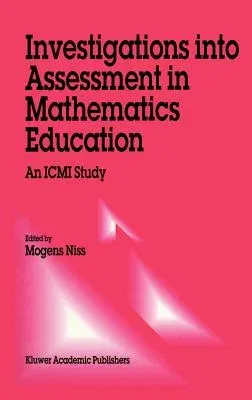Investigations Into Assessment in Mathematics Education: An ICMI Study (1993)Hardcover - 1993, 31 December 1992

Qty
1
Turbo
Ships in 2 - 3 days
In Stock
Free Delivery
Cash on Delivery
15 Days
Free Returns
Secure Checkout

Part of Series
New ICMI Study
Part of Series
New ICMI Studies
Part of Series
Contributions to Phenomenology
Part of Series
ICMI Study Series
Print Length
270 pages
Language
English
Publisher
Springer
Date Published
31 Dec 1992
ISBN-10
0792320956
ISBN-13
9780792320951
Description
Product Details
Book Edition:
1993
Book Format:
Hardcover
Country of Origin:
US
Date Published:
31 December 1992
Dimensions:
24.38 x
16.92 x
2.13 cm
ISBN-10:
0792320956
ISBN-13:
9780792320951
Language:
English
Location:
Dordrecht
Pages:
270
Publisher:
Weight:
585.13 gm